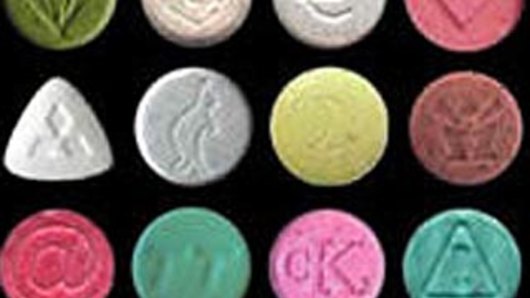
Save articles for later
Add articles to your saved list and come back to them any time.
The NSW government’s failure to fund the promised drug summit has been slammed as “astonishing” by the former commissioner of the state’s ice inquiry, who said the ongoing paralysis was a “shameful continuation of the longstanding drug policy vacuum in NSW”.
Advocates of drug reform were stunned after the Labor government failed to outline funding to the summit in Tuesday’s budget, despite then-opposition leader Chris Minns’ promise to hold a summit if elected.
Legalise Cannabis MLC Jeremy Buckingham said he believes the drug summit would address emerging drug trends and new regulation.Credit: Brook Mitchell
Professor Dan Howard SC, who led the $10.8 million special commission of inquiry which handed down 109 recommendations in January 2020, said the failure to allocate funding would be “stigmatising and traumatising” for those waiting on reform.
“It is astonishing that there is nothing in this budget for a drug summit, as this has long been a promised part of Labor’s platform,” he said.
“The hardworking clinicians and NGOs that keep this sector afloat by their sheer devotion to their task, and especially those who struggle to access services, will be very disappointed and troubled by this omission, which can only mean further harmful delays and a shameful continuation of the longstanding drug policy vacuum in NSW.”
“The government’s apparent paralysis and refusal to move forward on this issue is stigmatising and traumatising to those who have been waiting so long for help and reform.”
Legalise Cannabis MP Jeremy Buckingham said he had received assurances from Health Minister Ryan Park the summit had been allocated $1.8 million and would be held before the end of the 2023-24 financial year.
“There is a building community expectation that this government must act on drug law reform. So, it was very concerning that there was no mention of funding for the Drug Summit in the budget,” he said.
Two senior government sources who spoke on the condition of anonymity said they believed the summit would go ahead in February or March next year, but the premier’s office declined to confirm the timing.
Calls for drug reform has already created division within the nascent Labor government. In April, Minns slapped down Housing Minister Rose Jackson after she urged the state to “join the nationwide movement” toward pill testing at music festivals.
Minns warned his colleagues to refrain from engaging in “running commentary” about policy reform in portfolios which weren’t their domain.
“The lead minister in relation to these areas is Ryan Park, the minister for health, and I want to make it clear that will be how government decisions are made,” he said.
In response to questions from the Herald, Park said: “The NSW government’s drug summit will bring together addiction, health and other experts in developing a whole of community, evidence-based approach to achieving positive health outcomes.
“The cost of hosting the drug summit will be funded from the NSW Health budget.”
However, there was no line item or mention of a drug summit in the NSW budget this week.
Questioned about the lack of funding by Buckingham in parliament on Tuesday, Environment Minister Penny Sharpe said the government was “absolutely committed” to the summit but could not provide a date for when it would occur.
NSW Dominic Perrottet formally rejected a recommendation from the ice inquiry to decriminalise illicit drug use.Credit: Brook Mitchell
“But the member should not for one second take anything from his reading of the budget to suggest that there will not be a drug summit, that the government is not committed to the summit, or that the government does not understand the scourge of drugs.”
In September last year, former Premier Dominic Perrottet announced the government’s long-awaited response to the ice inquiry. Stopping short of decriminalising drugs, a “two strikes” policy for possession was implemented to help low-level drug offenders avoid courts for health intervention programs.
The ACT Labor government has pushed ahead with plans to decriminalise possession of small quantities of illicit drugs, with those caught now only issued a caution, a $100 fine or referred to a drug diversion program.
The laws will come into effect in late October.
Start the day with a summary of the day’s most important and interesting stories, analysis and insights. Sign up for our Morning Edition newsletter.
Most Viewed in Politics
From our partners
Source: Read Full Article

